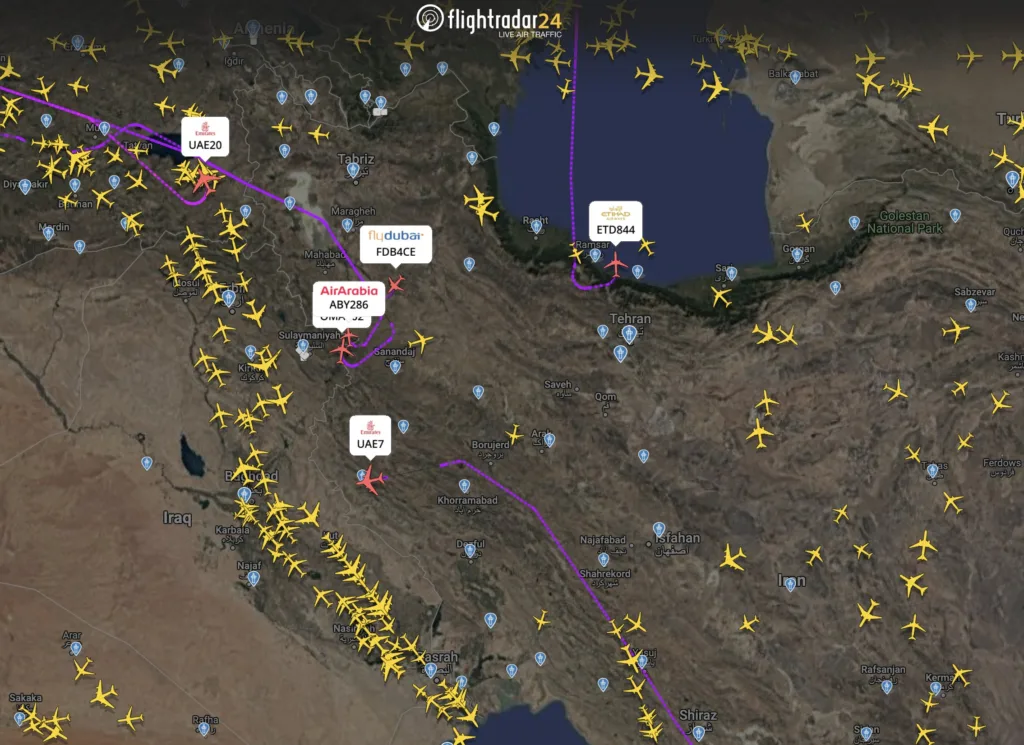As tensions between Iran and Israel have heightened, a string of international carriers has moved quickly to reroute or cancel flights across the Middle East. Mass airspace closures, particularly over Israel, Iran, Iraq, and Jordan, have caused mass diversions, turning back to departure hubs, and temporary suspension of routes.
Airlines have cleared skies over the region following Israeli attacks on Iranian sites, including nuclear and missile facilities. In response, Iranian airspace was closed, and Iraq quickly closed its airspace as well, forcing dozens of long-haul services to divert to other corridors or make unscheduled landings.
According to Eurocontrol, around 1,800 flights to and from Europe have been affected in a single day, including approximately 650 cancellations as of now. With airlines rerouting flights above Central Asia and Saudi Arabia, this article covers an airline-by-airline summary of flight cancellations, route adjustments, and diversions ignited by the ongoing conflict.
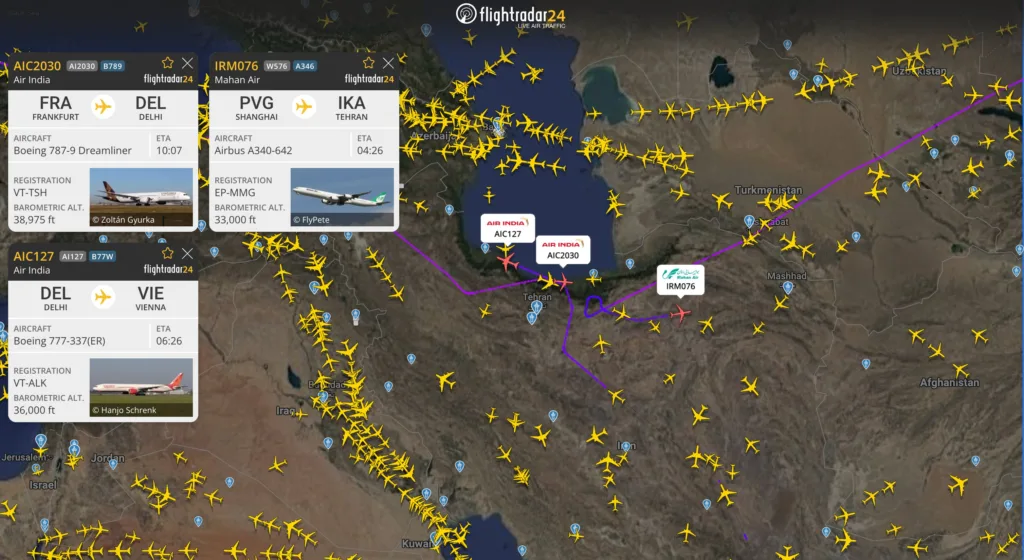
Which Airlines, Routes Are Affected?
Major airlines in Europe, the Middle East, and Asia have implemented emergency protocols to protect passengers and personnel during the rapidly evolving conflict. Below is a rundown of major carrier responses:
- Emirates: Cancelling all flights to and from Iraq, Iran, Lebanon, and Jordan. Cancelling some Friday and Saturday flights from the roster. One Emirates flight from Dubai to Manchester was diverted to Manchester due to airspace closure.
- Qatar Airways: Temporarily cancelled Iranian, Iraqi, and Damascus flights. Regional tensions caused rerouting over safer routes.
- El Al Airlines: Suspended all incoming and outgoing flights and began evacuating its aircraft from Ben Gurion Airport as a precautionary step. Some flights were diverted to Greece and Cyprus.
- Israir Airlines: Suspended operations and removed its fleet from Tel Aviv. The airline is hoping that Ben Gurion Airport will be closed for the whole weekend.
- Flydubai: Cancelled flights to Amman, Beirut, Damascus, Israel, and Iran. Affected flights included diversions such as Belgrade–Dubai to Yerevan, Armenia.
- Air India: Diverted at least 12 flights and sent four back mid-journey. Affected routes included flights to/from JFK, LHR, YVR, and ORD. Iranian airspace closure severely affected the airline’s Europe–India and North America–India networks.
- Delta Air Lines: Following the resumption of Tel Aviv flights on May 20, DL234 (Tel Aviv–New York) became an eight-hour “flight to nowhere” on June 13 and turned back at JFK after having traversed the North Atlantic.
- United Airlines: Following the resumption of Tel Aviv flights on June 5, its UA84 (Tel Aviv–Newark) flight was forced to return midflight, turning back at Newark at 2:38 AM after having crossed most of the Atlantic.
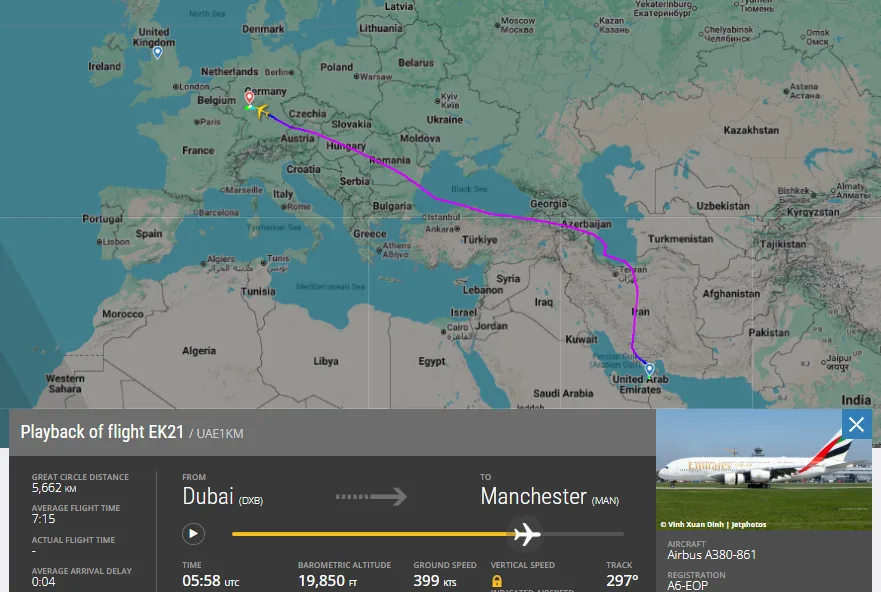
Israel Iran Conflict Flight Cancellations
- Etihad Airways: Cancelled two Tel Aviv flights and rearranged four others.
Some services were diverted to Baku as tensions increased. - Turkish Airlines: Redirected some flights to Azerbaijan and the routes were altered to avoid affected airspace.
- AJet (Turkish Airlines subsidiary): Postponed flights to Iran, Iraq, and Jordan until Monday. Services to Lebanon are only by day. Flights over Iraq will be undertaken without flying over restricted areas.
- Pegasus Airlines: Suspended all flights to Iran until June 19, as well as flights to Iraq and Jordan through June 16. Lebanon flights limited to daytime.
- Lufthansa Group: Suspended all flights to Tehran and said it will steer clear of Iranian, Iraqi, and Israeli airspace. The group is utilizing alternate routes over Central Asia.
- KLM: Suspended all Tel Aviv flights through at least July 1 due to safety concerns.
- Wizz Air: Suspended Tel Aviv flights and re-routed other flights to avoid the conflict zone in the Middle East. Route changes will likely extend for a minimum of 72 hours.
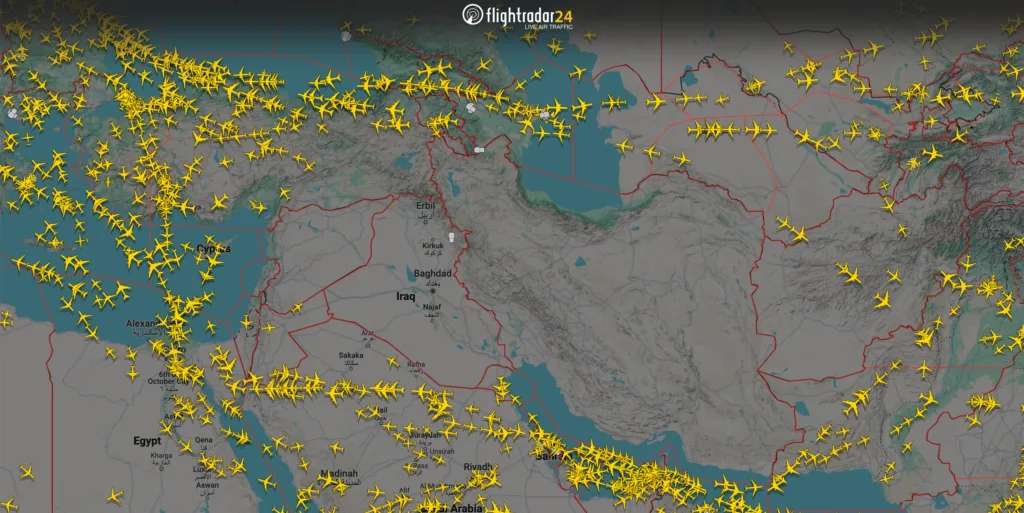
- LOT Polish Airlines: Rerouted Asia flights to avoid Iranian airspace.
- Aeroflot: Suspended Moscow-Tehran flights and re-routed services to places like Dubai, Doha, and the Maldives via Pakistani airspace.
- Aegean Airlines: Cancelled all June 13 flights to Tel Aviv. Further suspensions are expected on a case-by-case basis.
- airBaltic: Suspended all flights from and to Tel Aviv up to June 23.
- Air France: Temporarily cancelled flights to Tel Aviv.
- ITA Airways: Extended the suspension of Tel Aviv services up to July 31.
- Ryanair: Cancelled Tel Aviv flights up to August 31 following increased regional turmoil.
- TAROM (Romania): Suspended commercial flights to Tel Aviv, Beirut, and Amman up to June 16.
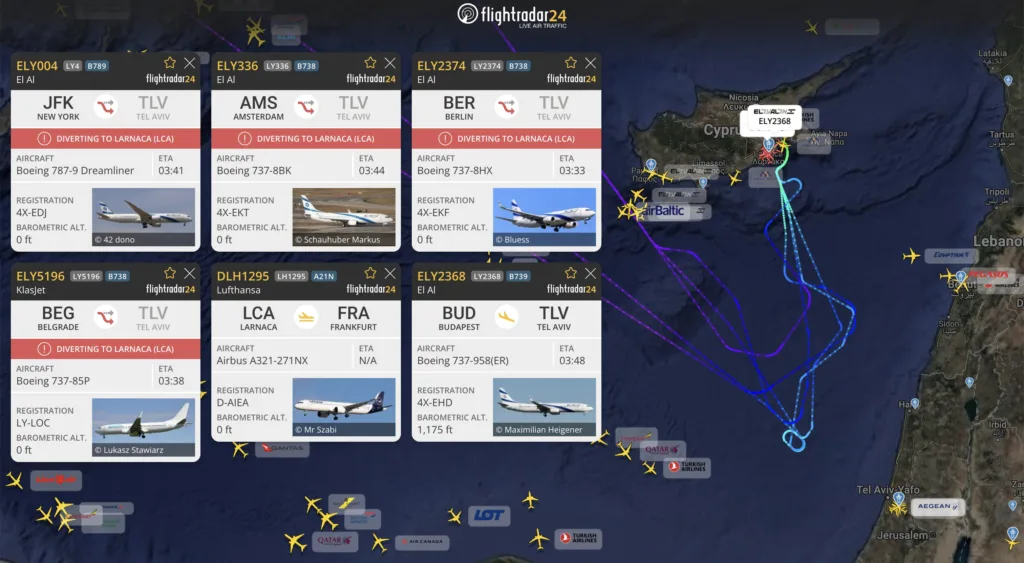
Airspace Closures and Strategic Re-Routings
The airspace in Iran was quickly closed to civilian overflights, with Iraq going so far as to shut down airport operations altogether. Jordanian, Lebanese, and Israeli airspace were partially or fully closed, with ripple effects across international aviation.
Among the busiest east-west routes between Europe and Asia, some of them were impacted, resulting in traffic being diverted through Saudi Arabia, the UAE, and the Caspian region.
The diversions illustrate the level of dependence on Middle East routes for transcontinental flights. Dubai to Manchester, Toronto to Delhi – many of the flights had hours added to their journey times, with extra fuel charges, crew layovers, and airport diversions.
Air traffic is now being rerouted either to the south, through Egyptian and Saudi Arabian airspace or to the north, via Turkey, Azerbaijan, and Turkmenistan. More than ten international flights altered their course and landed at Heydar Aliyev International Airport in Baku, Azerbaijan. These included services operated by major carriers such as AJet, Flydubai, Air Arabia, Jazeera Airways, Etihad Airways, and Turkish Airlines.
Meanwhile, a total of 29 flights carrying 2,427 passengers were diverted to Cyprus, with 20 flights from Europe and the United States arriving in Larnaca and nine in Pafos. According to local reports, hotel accommodations are being provided for the diverted passengers.
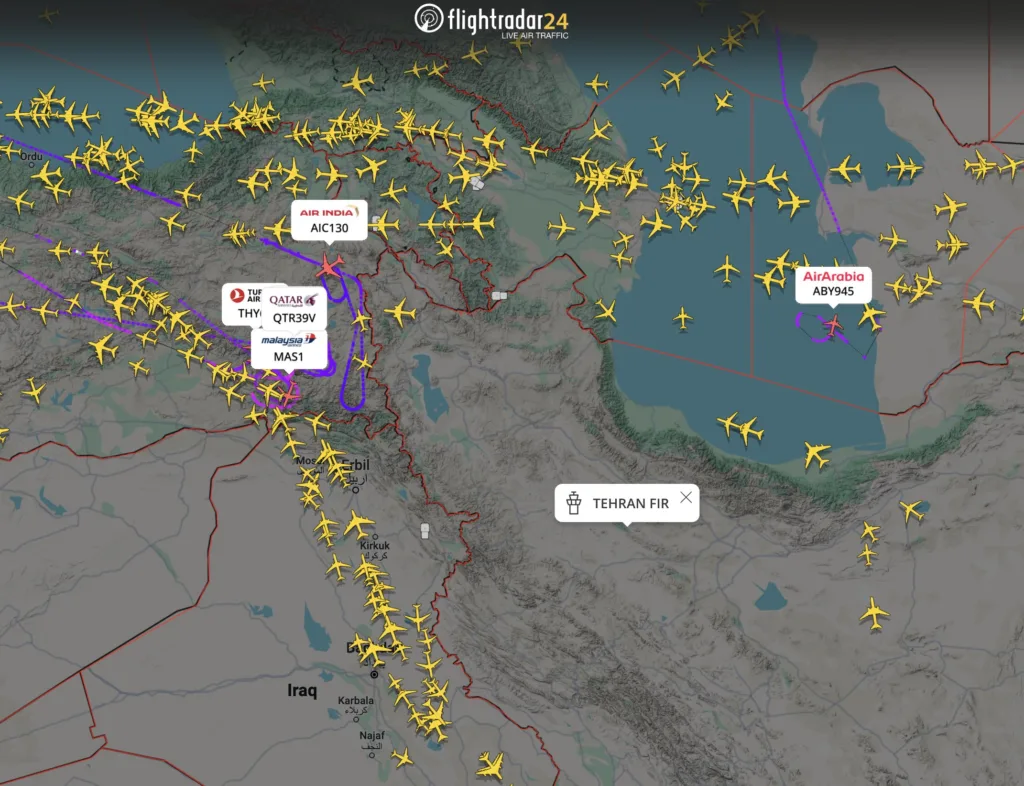
Israel Iran Conflict Flight Cancellations: What’s Next?
Israel Iran conflict flight cancellations will continue as long as there are ongoing military operations and retaliatory threats. Even though contingency plans have been initiated by most carriers, the long-term implications on scheduling, profitability, and safety protocols remain to be seen.
Moreover, the global regulatory bodies including EASA, the FAA, and IATA are closely monitoring developments. Airspace limitations, NOTAMs (Notices to Air Missions), and diplomatic negotiation will help establish when and under what conditions operations can resume safely.
With Israel warning of more attacks and Iran warning of revenge, air travel in the region is uncertain. Passengers should monitor airline information and look for live updates by using flight tracking websites.
Please join our Telegram Channel for the latest aviation updates.

